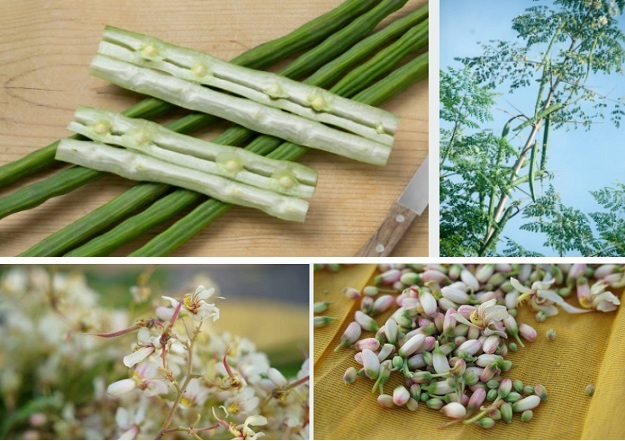Dec 30, 2025
Dec 30, 2025
Drumstick plant or Moringa oleifera also known as Sahjan in Hindi is a very common vegetable in India. But most of us are unaware about the amazing health benefits of this plant. It is known all over the world for its nutritious leafy-greens, flower buds, and mineral-rich green fruit pods.

Nutritional Facts
– Moringa greens (leaves) are an excellent source of protein. 100 g of fresh raw leaves contain 9.8 g of protein.
– Fresh pods and seeds are rich in oleic acid and vitamin C.
– It is and one of the richest source of vitamin A.
– The greens as well as pods also contain good amounts of many vital B-complex vitamins such as folates, vitamin B6 (pyridoxine), thiamine (vitamin B-1), riboflavin, pantothenic acid, and niacin.
– The greens (leaves) are one of the finest sources of minerals like calcium, iron, copper, manganese, zinc, selenium, and magnesium.
Health Benefits
Here are some of the surprising health benefits of this plant:
1. Regulates Blood Sugar Levels
Drumstick contains 18 amino acids which helps in treating many diseases. One important use is its anti-diabetic property. The methanol extract of leaves of Moringa oleifera was evaluated for its anti- diabetic efficacy. Use it in your regular vegetable soups to gain its benefits.
2. Relieves Joint Pains
Charaka has also mentioned it as a plant source for oil. Due to its medicinal benefits and analgesic effects, Moringa is the primary ingredient in many ayurvedic oils.
3. Boosts Memory And Concentration
The presence of glutamic acid in drumsticks helps to prevent ammonia intoxication. It is also an active neurotransmitter substance which in turns helps your memory and learning capabilities. Add drumstick to your dals so that the necessary nutrients flow into the dal while boiling.
4. Improves Fertility
Moringa can also prove beneficial in improving fertility. Recent research suggests that regular use of moringa is known to boost the sperm count and improve the quality of sperm in males. It also acts as a neurotransmitter and is involved in hormone production. Use moringa leaves in your mint or coriander chutney and add some garlic for the flavor.
5. Helps Clear Acne
Moringa is known for its purifying properties. The moringa leaf extract and oil can treat severe acne. The oil purifies the skin and helps to rejuvenate it. Moringa can be had with your regular vegetables as a simple gravy dish cooked with mustard sauce.
6. Promotes Tissue Growth
Moringa is beneficial for infants and adults alike. It contains Histidine which is used to form histamine a neurological compound released during allergic responses. It is used for growth and for the repair of tissue.
7. Kills Intestinal Worms
The flowers of moringa help to get rid of any worms that may be present in the intestine. You can make delicious pakoras with the drumstick flowers and enjoy with any sauce of your choice.
8. Aids In Healthy Pregnancy
The drumsticks are packed with proteins, vitamins, minerals, anti- oxidants and all these nutrients that are vial for the growing baby.
In Sanskrit, this plant is known as Shobhanjana which means a very auspicious tree. So, go ahead and add this vegetable in your dietary regimen and reap the countless health benefits that it has to offer.
Following parts of moringa are useful:
– Immature seed pods, called "drumsticks"
– Leaves
– Mature seeds
– Oil pressed from seeds
– Flowers
– Root
– The leaves are the most nutritious part of the plant, being a significant source of vitamins B, vitamin C, pro-vitamin A as beta-carotene, vitamin K, manganese, and protein. When compared with common foods particularly high in certain nutrients per 100 g fresh weight, cooked moringa leaves are considerable sources of these same nutrients. Some of the calcium in moringa leaves is bound as crystals of calcium oxalate. Oxalate levels may vary from 430 mg/100g to 1050 mg/100g, compared to the oxalate in spinach (average 750 mg/100g). The leaves are cooked and used in ways similar to spinach, and are commonly dried and crushed into a powder for soups and sauces.
Images (c) istock.com
29-Jan-2022
More by : Dr. Shiv Dwivedi